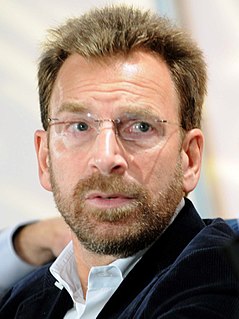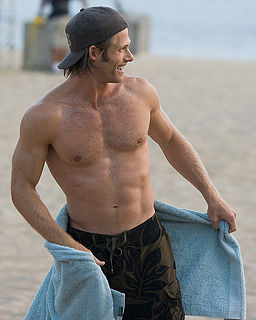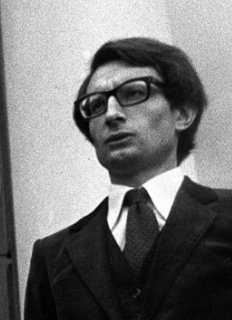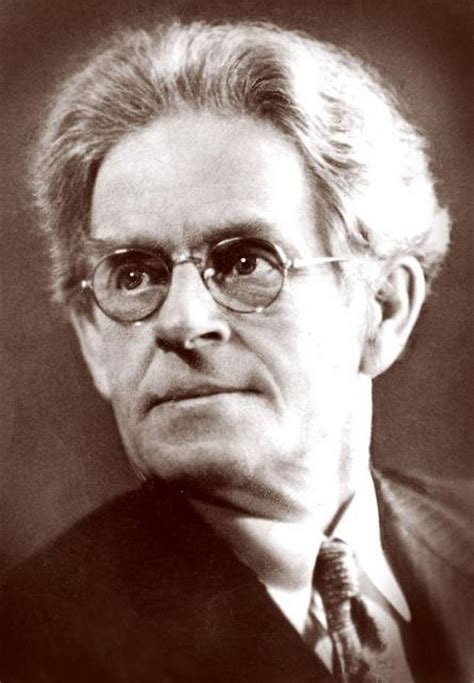A Quote by Nick Harkaway
A desire for privacy does not imply shameful secrets; Moglen argues, again and again, that without anonymity in discourse, free speech is impossible, and hence also democracy. The right to speak the truth to power does not shield the speaker from the consequences of doing so; only comparable power or anonymity can do that.
Related Quotes
If people depend on me to be a man of truth, I have to prove again and again and again and again that I am a man of truth. It cannot be that on Monday I am a man of truth, on Tuesday I speak three-quarters truth, Wednesday I speak half-truth, on Thursday I speak one-quarter truth, on Friday I don't speak at all, and on Saturday I can't even think how to speak the truth.
Indeed, theological discourse offers its strange jubilation only to the strict extent that it permits and, dangerously, demands of it wokman that he speak beyond his means, precisely because he does not speak of himself. Hence the danger of a speech that, in a sense, speaks against the one who lends himself to it. One must obtain forgiveness for every essay in theology. In all senses.
The dissident does not operate in the realm of genuine power at all. He is not seeking power. He has no desire for office and does not gather votes. He does not attempt to charm the public, he offers nothing and promises nothing. He can offer, if anything, only his own skin - and he offers it solely because he has no other way of affirming the truth he stands for. His actions simply articulate his dignity as a citizen, regardless of the cost.
Everything the Power of the World does is done in a circle. The sky is round, and I have heard that the earth is round like a ball, and so are all the stars. The wind, in its greatest power whirls. Birds make their nest in circles... The sun comes forth and goes down again in a circle. The moon does the same and both are round. Even the seasons form a great circle in their changing, and always come back again to where they were.
How any human being ever has had the impudence to speak against the right to speak, is beyond the power of my imagination. Here is a man who speaks-who exercises a right that he, by his speech, denies. Can liberty go further than that? Is there any toleration possible beyond the liberty to speak against liberty-the real believer in free speech allowing others to speak against the right to speak?
A person is wise who does not only know what is right and wrong, but also he knows very well his own power not to do something wrong. He just does not do it. Wisdom is a complete power within ourselves by which we try nothing. It just spontaneously works through us and we do things which are proper and right.
Relations of power "are indissociable from a discourse of truth, and they can neither be established nor function unless a true discourse is produced, accumulated, put into circulation, and set to work. Power cannot be exercised unless a certain economy of discourses of truth functions in, on the basis of, and thanks to, that power."
Confession frees, but power reduces one to silence; truth does not belong to the order of power, but shares an origincal affinity with freedom: traditional themes in philosophy, which a political history of truth would have to overturn by showing that truth is not by nature free--nor error servile--but that its production is thoroughly imbued with relations of power. The confession is an example of this.
... we are obliged to produce the truth by the power that demands truth and needs it in order to function: we are constrained, we are condemned to admit the truth or to discover it. Power constantly asks questions and questions us; it constantly investigates and records; it institutionalizes the search for the truth, professionalizes it, and rewards it. ... In a different sense, we are also subject to the truth in the sense that truth lays down the law: it is the discourse of truth that decides, at least in part; it conveys and propels effects of power.
Without free speech no search for Truth is possible; without free speech no discovery of Truth is useful; without free speech progress is checked, and the nations no longer march forward towards the nobler life which the future holds for man. Better a thousandfold abuse of free speech than denial of free speech. The abuse dies in a day; but the denial stays the life of the people and entombs the hope of the race.
If... we choose death rather than true life, God does not take away the power that He gave us. And not only does He not take it away, but He reminds us of it again and again. From the dawn till the dusk of life? For, indeed, no one can come to Christ, as He Himself said in the Gospels, unless the Father draws him (cf. Jn. 6:44).





































